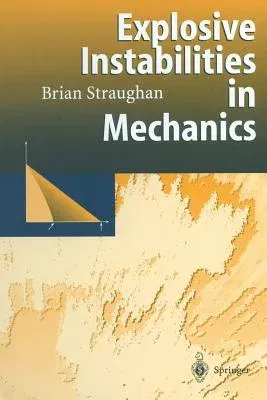Brian Straughan
(Author)Explosive Instabilities in Mechanics (Softcover Reprint of the Original 1st 1998)Paperback - Softcover Reprint of the Original 1st 1998, 28 October 2012

Qty
1
Turbo
Ships in 2 - 3 days
In Stock
Free Delivery
Cash on Delivery
15 Days
Free Returns
Secure Checkout
Print Length
197 pages
Language
English
Publisher
Springer
Date Published
28 Oct 2012
ISBN-10
364263740X
ISBN-13
9783642637407
Description
Product Details
Author:
Book Edition:
Softcover Reprint of the Original 1st 1998
Book Format:
Paperback
Country of Origin:
NL
Date Published:
28 October 2012
Dimensions:
23.39 x
15.6 x
1.14 cm
Genre:
Science/Technology Aspects
ISBN-10:
364263740X
ISBN-13:
9783642637407
Language:
English
Location:
Berlin, Heidelberg
Pages:
197
Publisher:
Weight:
303.91 gm

